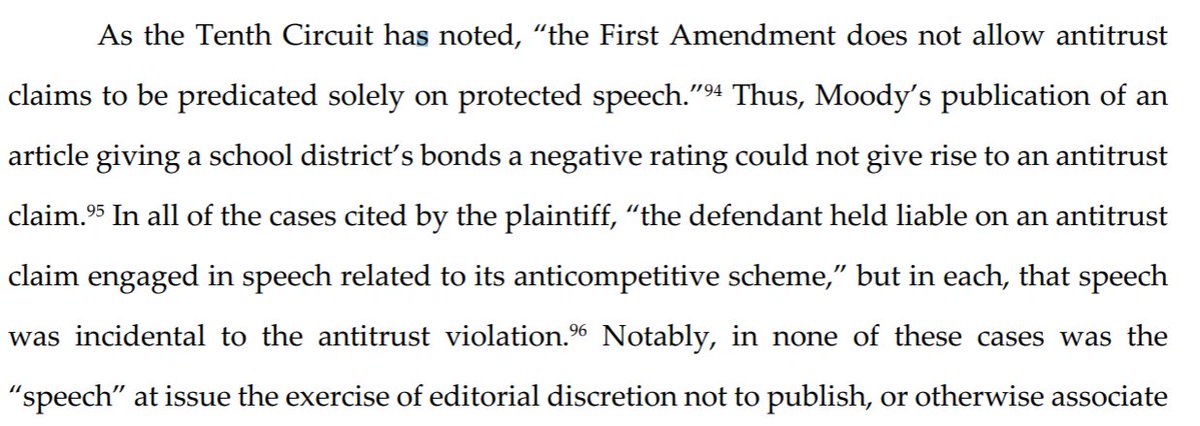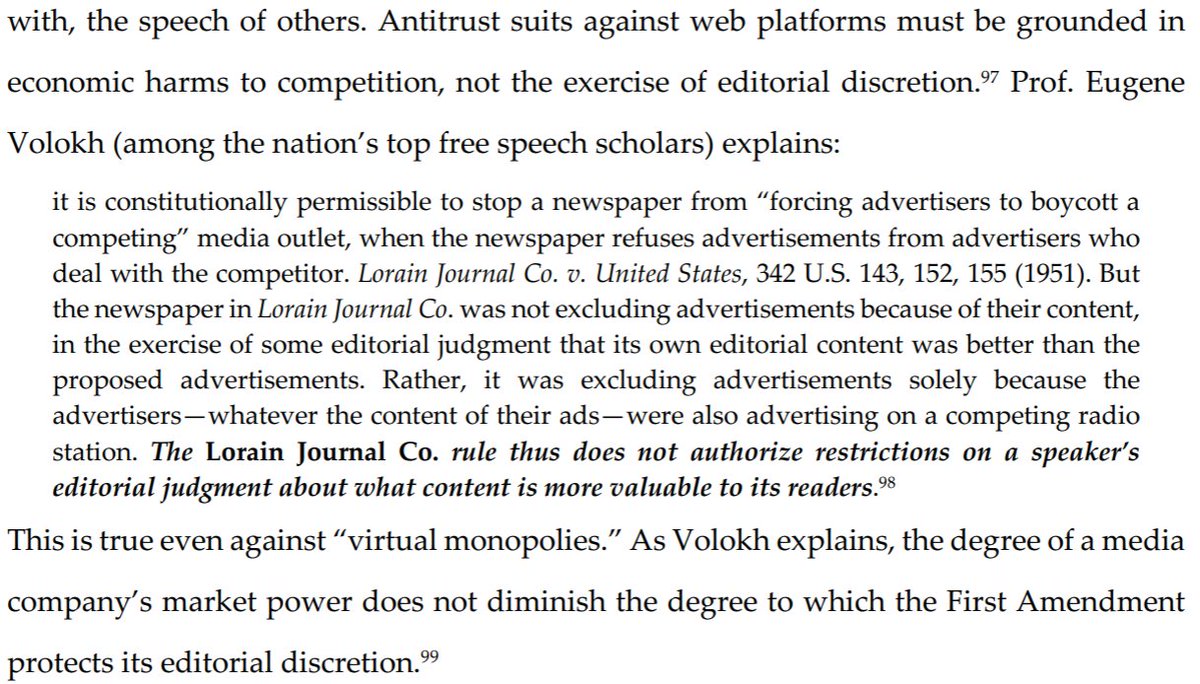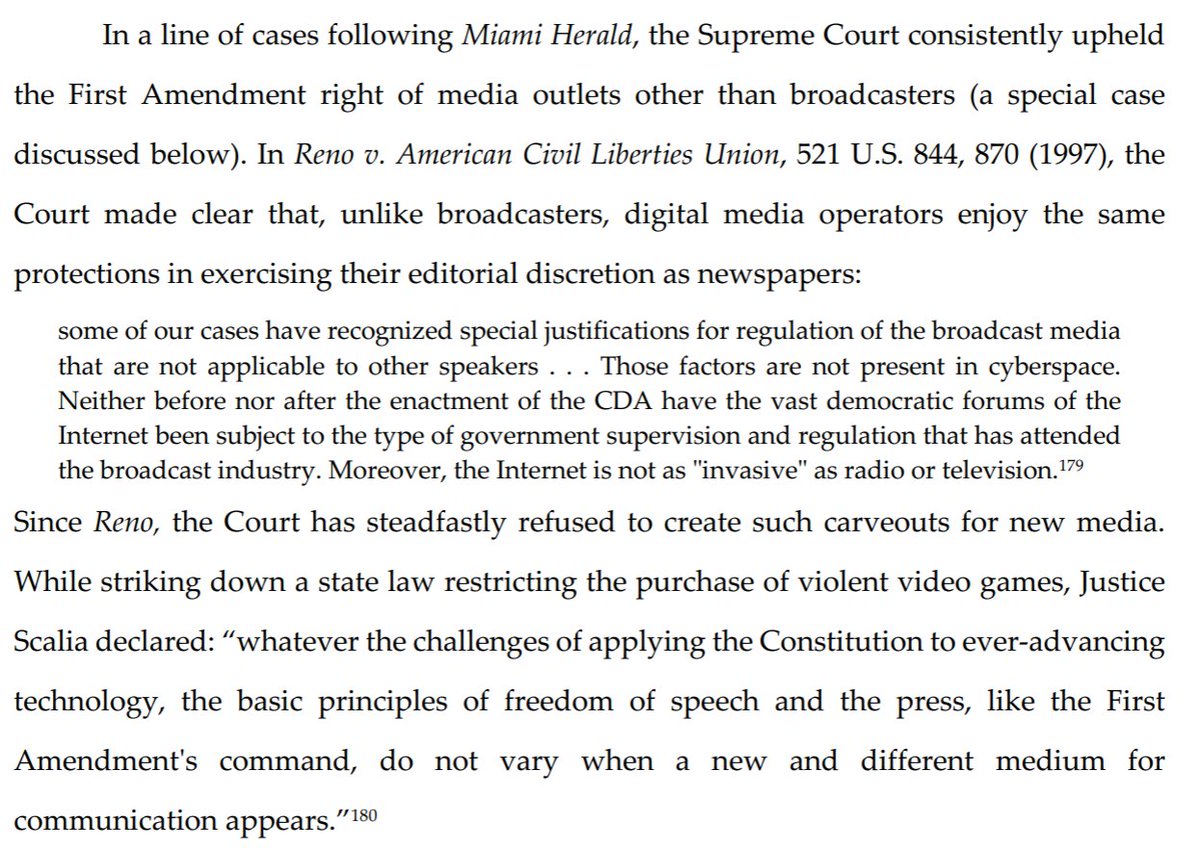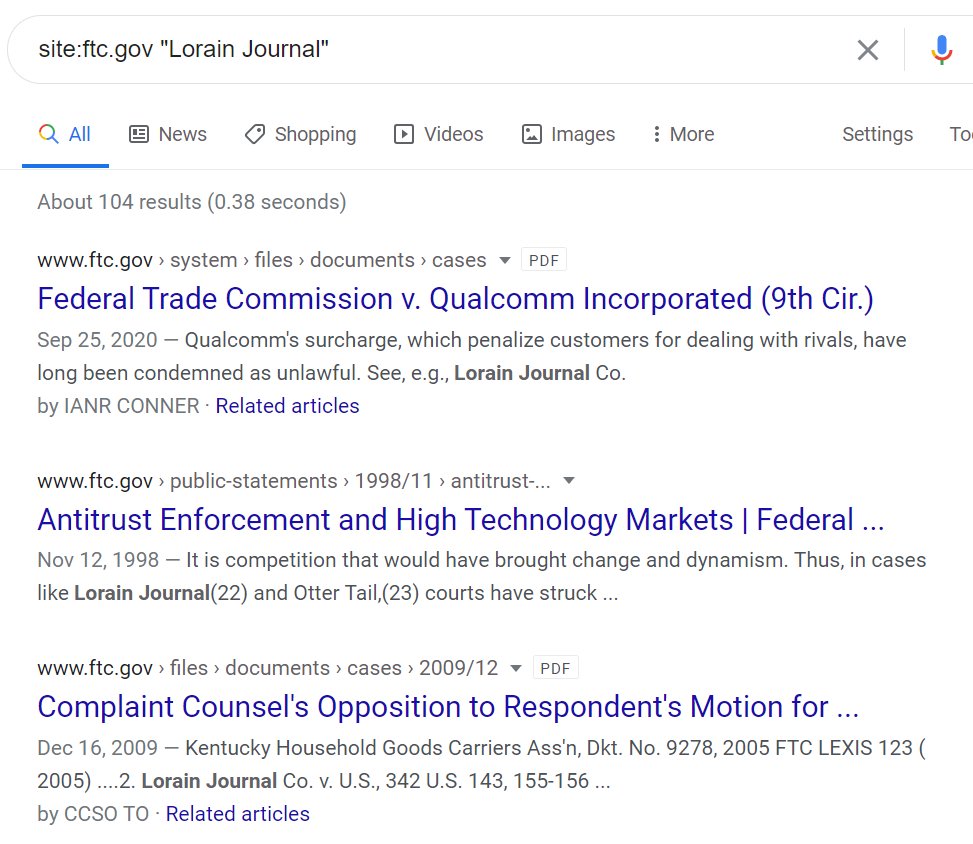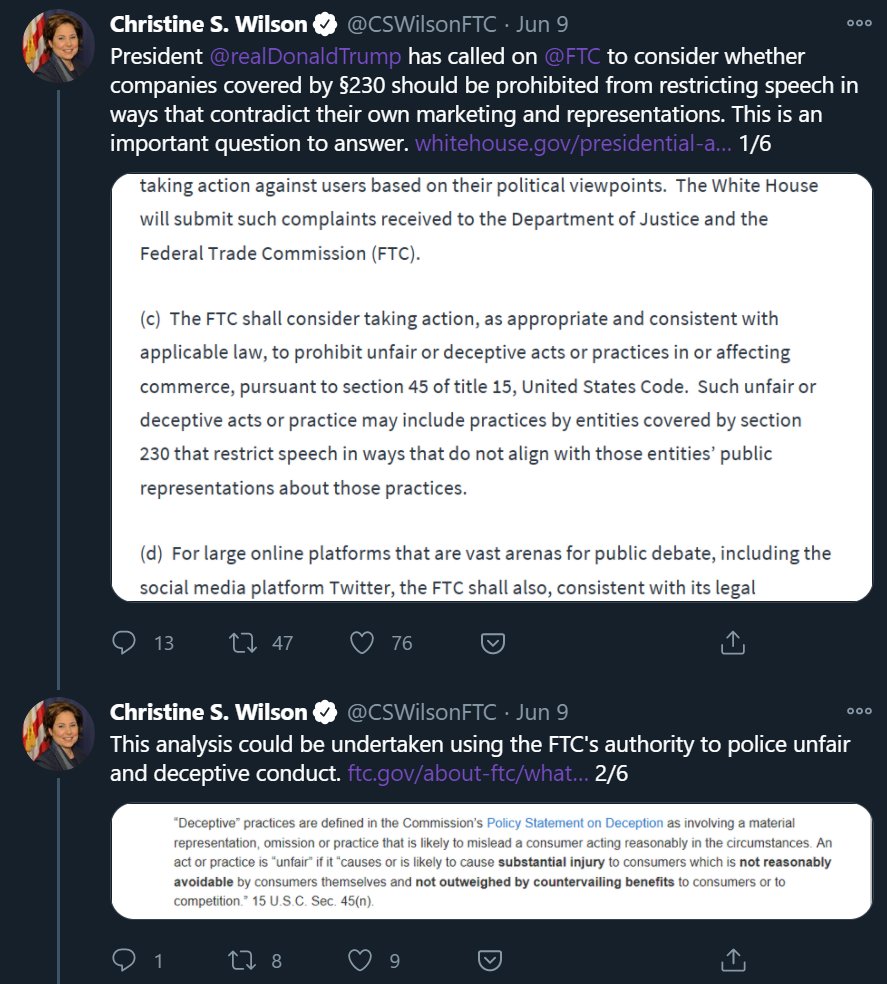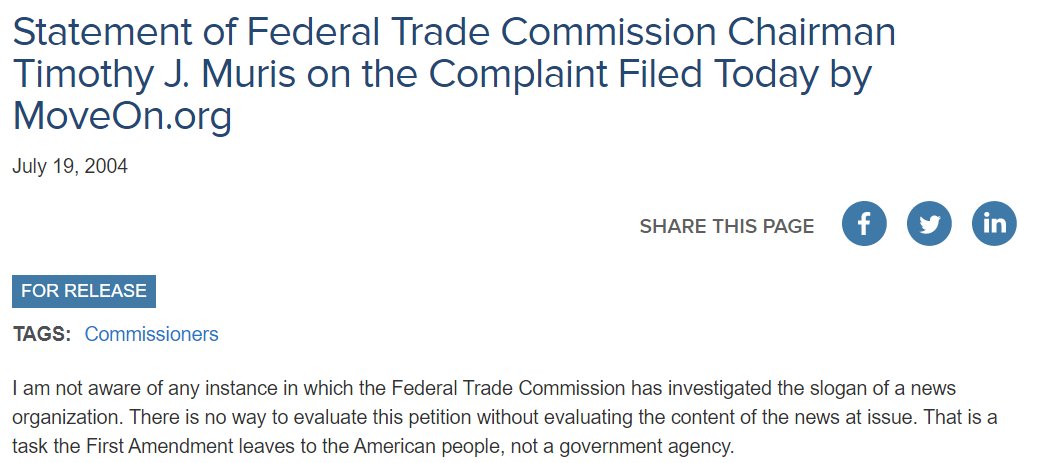No, political bias in content moderation doesn't violate #antitrust (or consumer protection) laws, even if rivals coordinated to do it, because websites have a First Amendment right to decide what content to carry
I just wrote a 59-page paper on this. Here's the short version https://twitter.com/CSWilsonFTC/status/1328877312490795016
I just wrote a 59-page paper on this. Here's the short version https://twitter.com/CSWilsonFTC/status/1328877312490795016
The paper—" #Section230: An Introduction for Antitrust & Consumer Protection Practitioners"—explains that 230 doesn't bar legitimate #antitrust claims, but also why the First Amendment bars claims made for non-economic, political/cultural/societal reasons
https://gaidigitalreport.com/wp-content/uploads/2020/11/Szo%CC%81ka-Kazaryan-Section-230.pdf#page=22
https://gaidigitalreport.com/wp-content/uploads/2020/11/Szo%CC%81ka-Kazaryan-Section-230.pdf#page=22
. @EugeneVolokh summarizes why you CAN sue a media outlet for economic conduct (like forcing advertisers to boycott its rivals) but CAN'T sue a media outlet for the standard decisions made by a publisher to refuse to carry content they don't like
https://papers.ssrn.com/sol3/papers.cfm?abstract_id=2055364
https://papers.ssrn.com/sol3/papers.cfm?abstract_id=2055364
And, yeah, website operators have precisely the same First Amendment rights as newspapers to decide what content to carry.
Lorain Journal isn't an obscure case. It's THE Supreme Court case on point and the FTC cites it all the time when discussing the intersection of antitrust and the First Amendment, so I'm sure @CSWilsonFTC is aware of it
Yet for months, @CSWilsonFTC has cheered on the White House's demands to rewrite #Section230, starting with this June thread, which argued that the FTC could use its consumer protection power to police political bias in content moderation
No, it can't
No, it can't
The #FTC has only ever applied its deception powers to commercial speech. It has been careful to avoid trying to second-guess decisions media companies make about non-commercial speech, as our paper explains
https://gaidigitalreport.com/wp-content/uploads/2020/11/Szo%CC%81ka-Kazaryan-Section-230.pdf#page=36
https://gaidigitalreport.com/wp-content/uploads/2020/11/Szo%CC%81ka-Kazaryan-Section-230.pdf#page=36
That's why the Republican FTC Chairman refused to pursue complaints that Fox News wasn't delivering on its promise to be "Fair & Balanced": because that would require assessing Fox's content (non-commercial speech), not just its marketing claims
When PragerU sued YouTube, the 9th Circuit dismissed its arguments because there was no objective way to decide whether YouTube really had been "neutral"
The same is true more generally: the FTC polices claims that can be objectively proven to be false, not "fairness" generally"
The same is true more generally: the FTC polices claims that can be objectively proven to be false, not "fairness" generally"
Our paper goes into a lot more detail, but the short version is that the category of objectively verifiable deception claims that the FTC might, in theory, bring about content moderation without running afoul of the First Amendment is so narrow as to be almost irrelevant
Now, back to antitrust, @CSWilsonFTC has implied that #Section230 bars valid @antitrust claims
Again, as our paper explains, 230 doesn't bar any antitrust claims that the 1A would allow, so changing 230 will do nothing to enable antitrust enforcement https://twitter.com/cswilsonftc/status/1316897082993745920?s=21
Again, as our paper explains, 230 doesn't bar any antitrust claims that the 1A would allow, so changing 230 will do nothing to enable antitrust enforcement https://twitter.com/cswilsonftc/status/1316897082993745920?s=21
In short, whether political bias in content moderation can be "proven," whether it's coordinated among tech companies or not, the FTC can no more get involved than it could sue newspapers for their editorial decisions.
The end.
The end.
PS read the paper for the full legal analysis https://gaidigitalreport.com/wp-content/uploads/2020/11/Szo%CC%81ka-Kazaryan-Section-230.pdf

 Read on Twitter
Read on Twitter